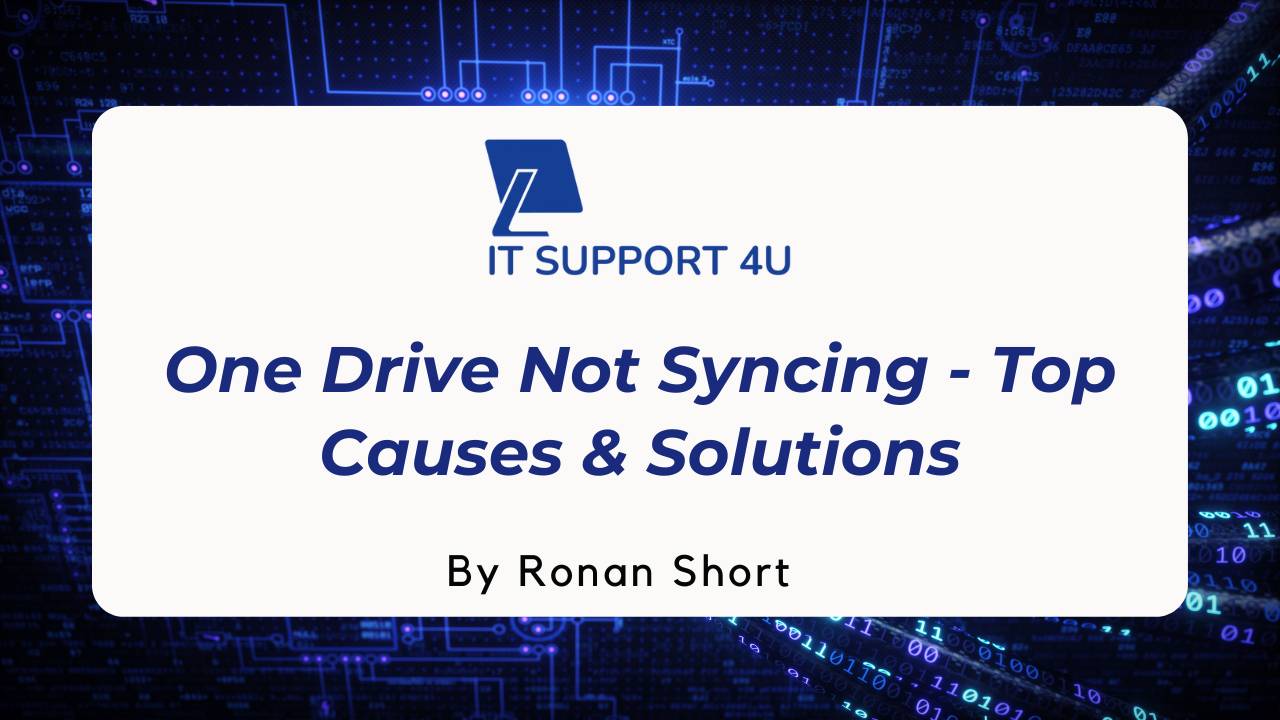Struggling to remain ahead of the ever-changing cyber risk scenario? Malicious actors are always up-to-date with their strategies and techniques. That's why it's important to be aware of the recent phishing trends to safeguard your organisation in 2024. This article will give you an insight into the latest phishing trends, so you can make sure your security measures are current.
What is Phishing?
Phishing is a prohibited activity – deceiving people into giving out their confidential information. Attackers pretend to be a reliable third party, persuading individuals to tap on a damaging link or share private data. These assaults occur via email or social media and can cause identity theft, financial harm, and other issues.
Spear-phishing, whaling, and smishing are common phishing tactics. With technology advancing, attackers are creating more complex strategies to deceive users. Therefore, it's essential for people and companies to be aware of such assaults.
How phishing works?
Phishers create fake emails, websites and texts to deceive people. They want to steal data by getting people to share their login details or payment info.
Common types of phishing are:
Spear-phishing: using job titles or locations to convince victims.
Whaling: targeting executives with important data.
Smishing: Sending texts to manipulate people.
Vishing Phoney: phone calls for manipulation.
Reasons for phishing
Phishing is a growing threat. Mischievous people want to access sensitive data without permission. Reasons for phishing can vary. They include financial benefits, spying and political interests. Tactics like social engineering, malicious software and fake websites are used to fool victims into giving away personal details.
Most attacks are to get money. That includes stealing bank info, credit cards and login details. Espionage is another goal. Criminals try to get secret info from govt. or businesses. They also use phishing to spread malware and ransomware to take control of a computer.
As tech advances, so do the criminals. Now, specific people in an organization can be targeted with emails that look legitimate.
People and organisations must stay current on cyber threats to stay safe in 2024. Training on recognizing phishing schemes can help. Lastly, double-check the source of emails before responding with confidential info. Safer that way!
Key Phishing Trends:
The ever-changing methods of phishing have become a big issue for online safety. Knowing the recent trends is key to successfully fighting this menace. Here's some info on the developing phishing trends you should be aware of in the upcoming years.
Spear phishing: Personalized messages, which make it harder to identify.
Social media phishing: Using social media for distributing malicious material.
Mobile device phishing: Infecting mobile phones with malware through text messages or apps.
Spear phishing is a popular approach for hackers. They make custom messages and aim at particular people for maximum impact. Social media is also continuously used for phony "too-good-to-be-true" offers and contests.
On the other hand, mobile phones are an attractive target, and hackers exploit flaws in apps and operating systems. These trends get more complex and wide-reaching annually, so individuals and organizations must stay aware and be careful against cyber threats.
Geo-Targeted Phishing
Geo-targeted Phishing is a popular cyberattack tactic that's been growing rapidly lately. Attackers use IP-based targeting and spoofed location data to deceive victims into giving out personal data or downloading malware. Nowadays, such phishing has become immensely sophisticated due to advancements in cybersecurity tech.
The more people rely on the net, the more successful geo-targeted phishing scams there are. As a result, attackers can tailor messages to match certain regions, industries or cultural norms. Also, some cyber criminals use local languages and dialects in emails and messages to increase their chances of convincing targets. Additionally, attackers make fake social media profiles that post local-interest news before luring victims into giving away their details.
Geo-targeted phishing attacks are both dangerous and hard to detect. Individuals should be cautious when using email and social media to stay safe online. Don't divulge confidential information without verifying the email source or examining websites before entering details or data.
Artificial Intelligence
Advances in machine learning are transforming phishing attacks. Natural Language Processing and Neural Networks let attackers make more convincing scams. They can even analyse past interactions to tailor messages that deceive. AI-powered automated social engineering tools are also popular for spear-phishing campaigns. This boosts attack success rates.
It's essential to recognize the potential of tech innovations to make scams even more sophisticated.
Adversaries are also using deep fakes. AI algorithms let them manipulate audio and video recordings. This creates deceptive content for targeting individuals or organizations.
Bypassing Multi-Factor Authentication
Technology is advancing, and hackers are getting crafty. Social engineering can bypass multi-factor authentication by tricking people into revealing codes or passwords. SIM swapping is another method--fooling the phone provider into transferring control of a victim's number to an attacker's device.
Biometrics can be tricked, too. The software can create fake facial scans or synthetic fingerprints. To protect against this, strong passwords and multi-factor authentication should be used. Businesses should educate employees on social engineering and invest in security measures that detect suspicious activity. Stay vigilant and stay informed.
Build a Security-focused Culture
Creating a culture that cares about security is essential to protect against phishing. Companies should ensure everyone has the knowledge and tools to identify and report any breaches. Training sessions, phishing exercises, and education on new threats can help keep risks low. Establishing a security-based culture will make companies more resistant to cyber threats and improve overall performance.
Voice Phishing
Voice UI in phishing has shot up! Thus, a new trend of tricking people with malicious automated calls is here! These 'Voice Phishing Systems' ask for confidential info like credit card details, passwords, account numbers etc.
Vishing and Smishing are also done using this type of phishing. Attackers use AI to sound genuine.
Organisations and individuals should be careful to recognise these scams and know how to avoid them. Multi-factor authentication and checking inbound messages for any errors will help to reduce the chances of falling victim to fraud.
Spear Phishing
Spear Phishing is a kind of attack that targets people or groups. It uses social engineering. Attackers copy people in power or popular brands to get access to details. They use data from social media and other public sources to manipulate victims.
As businesses focus more on cybersecurity, spear phishing is getting more attention from criminals. Advanced tools help attackers make messages that fool defences. Also, spear phishing has spread beyond emails to apps, calls, video chats and social media.
During the pandemic, remote work made targets bigger and less protected. That's why teaching employees how to spot suspicious messages and report them is important. Plus, multi-factor authentication can stop attackers from pretending to be real users.
Overall, Spear Phishing is risky. To protect from it, businesses need employees to be educated. They must have MFA, regular vulnerability assessments and pen tests.
Smishing
The latest phishing trend? Smishing. Scammers send texts with links that, when clicked, download dangerous viruses or malware onto the recipient's device. Another way they try to get your information is by sending a convincing message. It's important to stay careful!
Also, Cyber criminals use "Social Smishing" on social media. They create fake profiles that look like family or friends, fooling you into clicking a malicious link or giving away private information.
Don't click suspicious links or give away personal info from unknown numbers or contacts to stay safe. Keep up with the phishing trends and learn how to protect yourself.
Tax-based phishing
Fraudsters pretend to be from government tax bodies to get sensitive info, like Social Security Numbers and banking info. They demand payment or threaten legal action.
Tax-based phishing is more popular with digital taxation systems and online tax filing. These attacks happen more during tax season when attackers take advantage of people's worries about taxes and fear of not following the rules.
Secure Your Digital Horizons with IT Support 4U
Cyber threats are on the rise. IT Support 4U provides all-around solutions to protect against such dangers, including phishing scams. Our expert team offers 24/7 help for your peace of mind.
We stay ahead of the curve by analysing emerging trends. Our strategies involve user education, multi-factor authentication and real-time threat monitoring.
In 2024, deep fake phishing attacks are expected to rise. AI-generated audio and video can imitate trusted sources, duping victims into giving away confidential data or funds. It's important to partner with an experienced security provider like IT Support 4U to detect and respond to these threats.
We're dedicated to keeping your digital horizons secure. Contact us for a free consultation & learn how we can protect you from the latest phishing trends.
Get an IT Plan Today!













